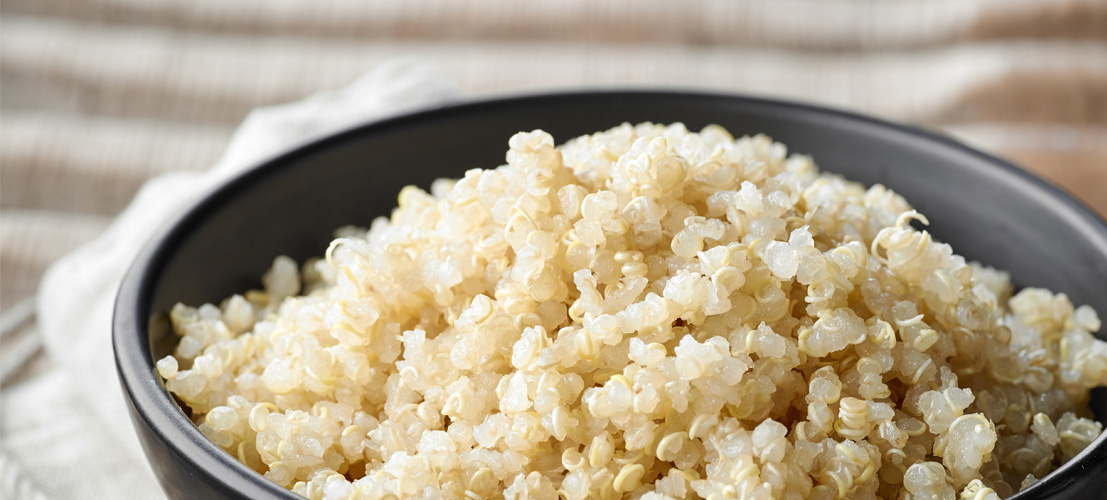
- Fun fact: Quinoa contains saponins, a bitter compound which acts as the plant’s defense mechanism to ward off insects.
- Quinoa (keen-wah) is a member of the Amaranthaceae family which also includes amaranth, beets, kaniwa, lamb’s quarters, spinach, sugar beet and Swiss chard.
- Quinoa, as well as amaranth and buckwheat, are seeds, commonly known as a “pseudo-cereal.” These seeds have similar nutrient profiles and uses as “true” cereal grains but are not part of the grass botanical family.
Nutrition
- 1/2 cup of cooked quinoa is an excellent source of manganese and a good source of magnesium, phosphorus, and copper.
- Manganese assists in cartilage and bone formation and wound healing.
Magnesium aids in blood pressure and blood sugar regulation, bone formation, along with nervous system and immune function. - Phosphorus promotes bone formation, energy production and storage and hormone activation.
- Copper supports bone, collagen, and connective tissue formation as well as energy production and iron metabolism.
How to Purchase, Prepare, and Store
- Purchase quinoa at grocery stores year round either prepackaged or in the bulk section of your grocery store.
- Quinoa is available in white, red or black seeds and can also be purchased as flakes or flour.
- To prepare: First rinse quinoa using a fine sieved colander. Use a 1:2 ratio, 1 cup quinoa to 2 cup water or broth. Bring the water and quinoa to a boil in a saucepan. Reduce heat to simmer and cover, cook for 12-15 minutes or until water is absorbed. Let sit 5 minutes and then fluff with a fork prior to serving.
- Store quinoa in an airtight container out of direct light.
- Quinoa can be added to salads, soups, casseroles and even smoothies. Quinoa flour can be used in baked good recipes.
Nutrition Facts
1/2 cup cooked quinoa
- Calories: 111
- Protein: 4.07 g
- Fat: 1.78 g
- Carbohydrate: 19.7 g
- Fiber: 2.6 g
- Sugars: 0.80 g
- Calcium: 16 mg
- Magnesium: 59 mg
- Potassium: 159 mg
- Vitamin C: 0.0 mg
- Folate: 39 µg
- Vitamin A: 5 IU
- Vitamin K: 0.0 µg
Source: fdc.nal.usda.gov
Recipes
Request an Appointment
